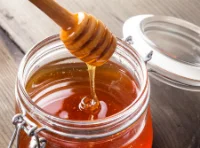Kid-Safe Herbls for Health
/Herbs not only enhance the flavor of foods, they provide a gentle, powerful, and natural approach to wellness. There are many kid-safe herbs that can be used as a tonic to support overall health, to support immune function, and to soothe common complaints such as a tummy ache or sore throat. Herbal remedies for children are commonly prepared as tinctures, infusions, or teas.
A tincture is a liquid preparation of an herbal extract (the medicinal parts of the herb). Tinctures are usually administered by mouth. For children, look for tinctures extracted in vegetable glycerine or apple cider vinegar--these will be sweet and safe for kids.
Infusions, while prepared similarly to tea, do not contain leaves from the tea plant Camellia sinensis (e.g., black, white, and green tea). Infusions are prepared from the delicate leaves and flowers of herbs. A steeping process extracts the beneficial components of the herb: Place the plant parts in a jar and cover them with boiling water. Allow the liquid to sit for as long as you'd like, unless otherwise instructed. The longer the steeping process, the more potent the infusion will be. Infusions can be added to hot or iced beverages, and in cooking.
Herbal teas are made using water and are the easiest to prepare--but tend to be the least concentrated way of using herbs. You often have to drink larger quantities to achieve the same medicinal benefit than if you were using a tincture or infusion. But don't discount its health benefits: An herbal tea is a real delight when you are nursing a cold. Check labels when buying packaged herbal teas--some will contain Camellia sinensis (the tea plant) and may contain caffeine.
A wide variety of recipes exist for herbal beverages. Follow herb preparation instructions carefully--especially boiling time and steeping time. Otherwise, the medicinal properties of the tea may be too strong or weak, bitter, or flavorless.
Herbal beverages, hot or iced, children may enjoy:
Fall: Astragalus, black elderberry, raw honey (immunity booster, cold remedy)
Winter: Ginger, cinnamon, lemon balm, hibiscus, raw honey (warming, good for colds)
Spring: Stinging nettles, rosehips, milky oat seed, raw honey (allergen fighter, especially at change of seasons)
Summer: Chamomile, lemon balm, rose hips, raw honey (calming, cooling)
Image Attribution: oksix/bigstockphoto.com
References


